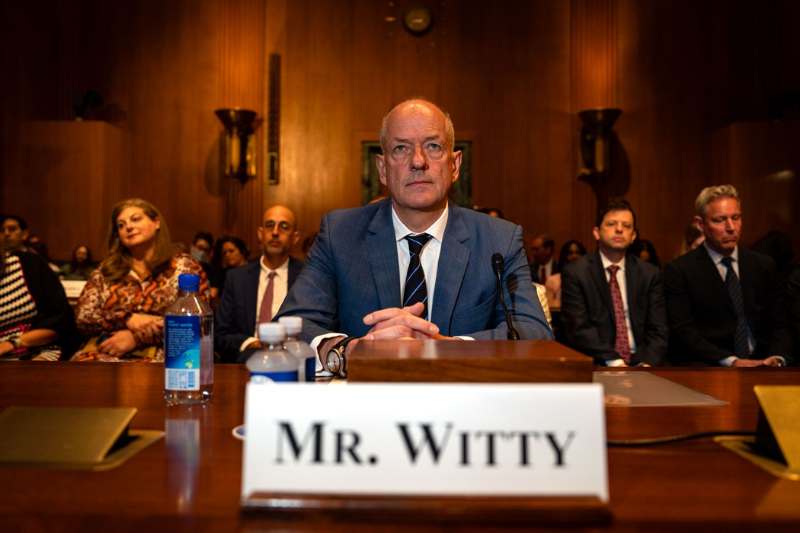
UnitedHealth Group CEO Andrew Witty Resigns: What’s Next for UNH Stock?
In a surprising move, UnitedHealth Group CEO Andrew Witty has announced his resignation, sending shockwaves throughout the healthcare and stock markets. This leadership change has sparked major discussions about the company’s future and what it means for its stock performance. Let’s dive into the impact of this resignation on UnitedHealth Group and UNH stock.
Andrew Witty, who served as the CEO of UnitedHealth Group, had been a key figure in steering the company through a period of growth. Known for his leadership experience, particularly with GlaxoSmithKline, Witty played a crucial role in expanding UnitedHealth’s healthcare services division, Optum. His resignation has caught many by surprise, considering his substantial contributions to the company’s expansion.
When a high-profile CEO like Andrew Witty resigns, it often raises questions about the company's direction and stock performance. The initial impact on UNH stock was immediate. UnitedHealth Group's stock (UNH) experienced a significant drop following the announcement. The uncertainty surrounding the leadership transition has led investors to reevaluate their positions.
Following the resignation of Andrew Witty, UnitedHealth’s stock price (UNH) saw a sharp decline. Investors have expressed concern about what this leadership change means for the company’s future growth and strategy. The impact on the UNH stock price reflects a general sense of uncertainty regarding how the company will fare under new leadership.
In response to Witty’s resignation, UnitedHealth Group appointed Stephen Hemsley as the new CEO. Hemsley, who served as the CEO of UnitedHealth from 2006 to 2017, is a well-known figure in the company. His return to the helm aims to provide stability during this transitional period.
Under Hemsley’s previous leadership, UnitedHealth achieved significant growth, making his return a potentially positive move. However, some analysts are questioning whether his leadership style will be effective in addressing the current challenges facing the healthcare giant, particularly rising costs and increased competition in the healthcare sector.
UnitedHealth Group, the parent company of UnitedHealthcare, has long been a leader in the healthcare industry. As one of the largest health insurers in the United States, the company’s performance has major implications for the broader healthcare market. The departure of CEO Andrew Witty raises questions about the future direction of United Healthcare and the company’s ability to maintain its position as an industry leader.
With Stephen Hemsley back at the helm, there’s hope that UnitedHealth Group can weather the leadership transition and return to a stable growth trajectory. However, Hemsley will face significant challenges. Healthcare costs are rising, competition is intensifying, and the overall market environment remains uncertain. How well Hemsley can adapt to these challenges will determine the future trajectory of UnitedHealth Group and its stock performance.
The long-term effects of Andrew Witty’s resignation on UnitedHealth Group and UNH stock will depend on several factors. Investors are watching closely to see how Hemsley manages the company’s strategy moving forward. The healthcare market is rapidly changing, and UnitedHealth will need to continue to innovate to maintain its competitive edge.
The resignation of CEO Andrew Witty has caused a temporary dip in UnitedHealth stock, which may present an opportunity for investors. With Hemsley at the helm, there is potential for the company to rebound. Investors will need to monitor UnitedHealth’s performance over the next few quarters to determine if the company is on a path to recovery.
Given the company’s size, resources, and market influence, UnitedHealth Group remains a formidable player in the healthcare industry. If Hemsley can successfully navigate the challenges ahead, UnitedHealth may continue to thrive in the long run.
The resignation of UnitedHealth Group CEO Andrew Witty marks a significant turning point for the company. While the immediate impact on UNH stock has been negative, the appointment of Stephen Hemsley offers some hope for stability. How UnitedHealth Group navigates this leadership transition and adapts to the evolving healthcare landscape will play a critical role in its long-term success.
For investors, this period of uncertainty may present an opportunity to assess the potential of UnitedHealthcare stock. By closely monitoring the company’s performance and leadership decisions, investors can make informed choices about their investments in UnitedHealth Group and its various divisions, including UnitedHealthcare.
UnitedHealth Group, with its established position in the healthcare sector, has the potential to recover from this leadership change. However, the next few months will be crucial in determining how well the company responds to the challenges it faces under new leadership.